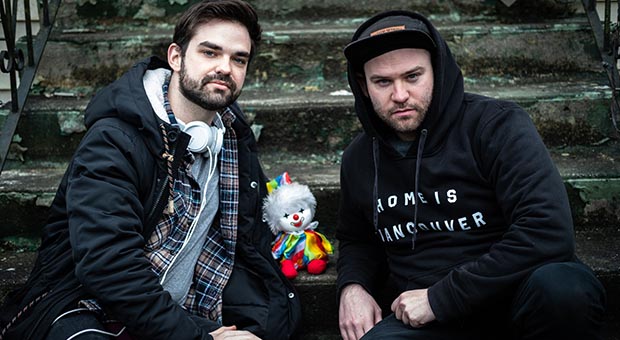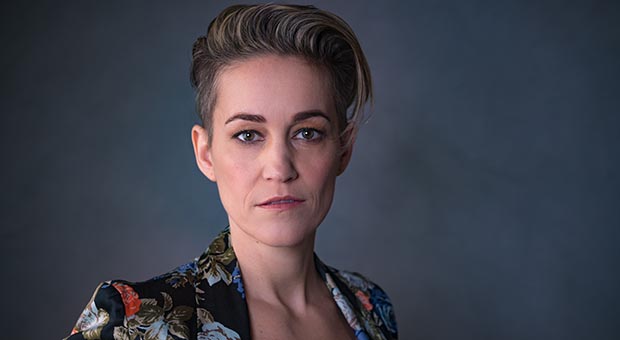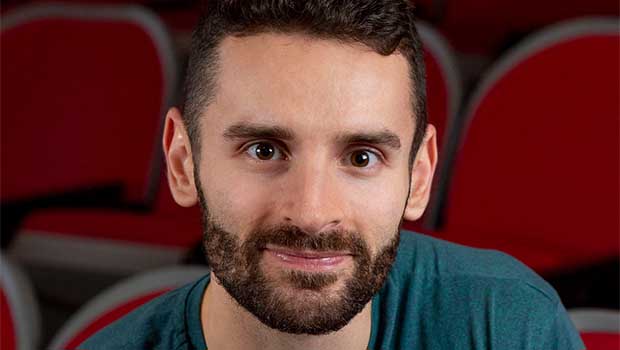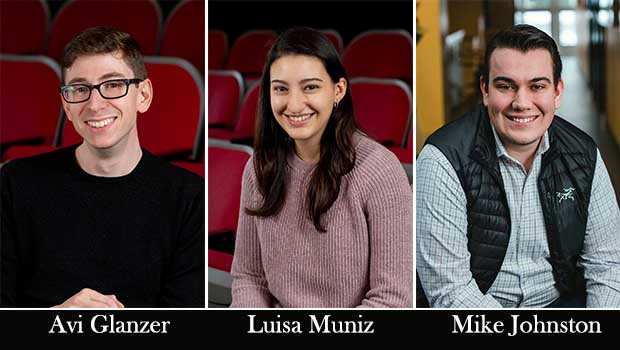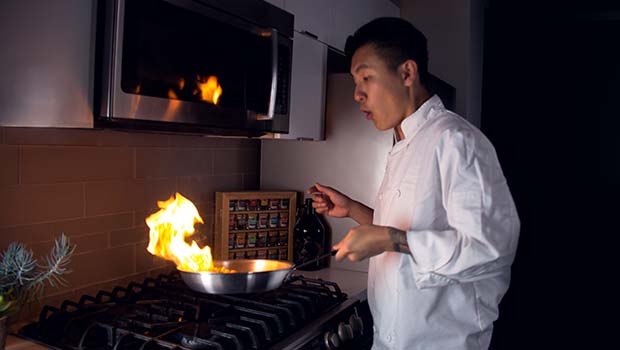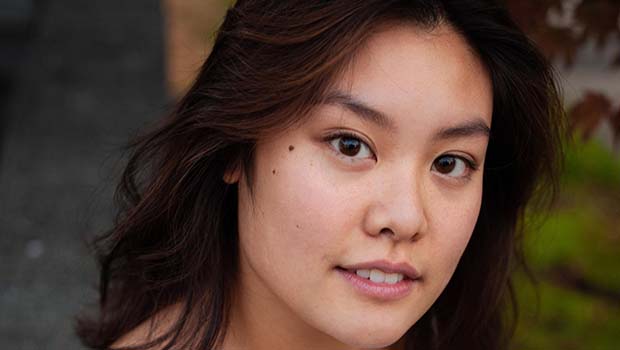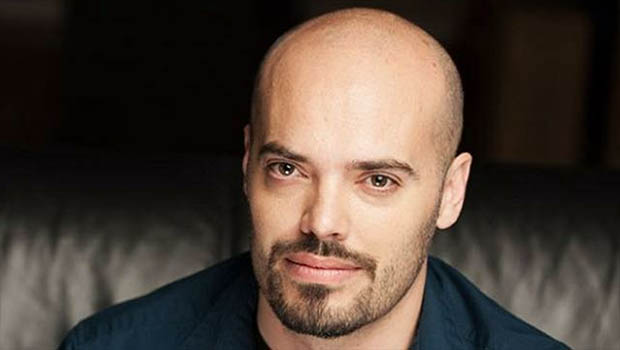
07 Jul The Biz Interview: Rusty Nixon
For Rusty Nixon, Residue is a project fifteen years in the making. As the writer and director of the film, he’s been with Residue since the very beginning and has recently completed the finished product with a cast featuring James Clayton, Taylor Hickson, Matt Frewer, Elysia Rotaru, Alika Autran, Dan Payne, Costas Mandylor, William B. Davis, Blaine Anderson, and Linda Darlow.
Just ahead of the Vancouver screening at The Rio on Sunday, July 9th, we spoke with Rusty Nixon about the film and his creative process along the way.
________________________________
Can you start by telling us about you and your newest film as a writer/director, Residue?
My name’s Rusty Nixon. I got my start making documentaries about twenty years ago. I’ve spent years doing as many favours as I could for all the film people I knew in hopes of cashing them all in – if I was ever lucky enough to make my own film. That’s kind of what Residue is – years of hard work coming together.
What can you share about your creative process in making the film – from the earliest concepts writing it all the way to directing and release?
I wrote the first draft about fifteen years ago. Over the years I’ve reworked the story to take advantage of things I have available. An example being the Mr. Fairweather character. He was originally written as a shady pool hall owner. Well, I don’t know a whole lot about pool and I don’t know anyone who owns a pool hall. But I did spend years making wrestling videos for ECCW. Not only did I learn a lot about filming and editing action scenes but by changing Fairweather to a crooked wrestling promoter I was able to show a unique side of a world I knew quite well. So my creative process is all about stopping and smelling the roses. I always tell aspiring filmmakers to take a good hard look at the hand they’re holding when they’re coming up with story ideas. Look at Kevin Smith who wrote about the place he worked at and filled the story with the talented people he knew. He saw the potential that was right in front of him and started an amazing career out of it.
________________________________
“Write a lot. You need at least three scripts to compete in today’s market. Give yourself the gift of time. Took me twenty years and I’d give twenty more to get to make a movie. “
________________________________
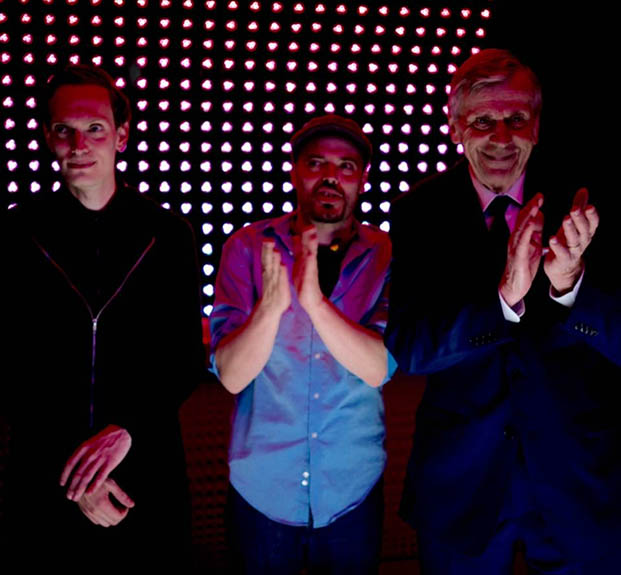
What rewards do you get from being able to direct a film that you’ve also written?
It’s a lot less stressful. I don’t have to worry about hurting the writer’s feelings or having conflict if I need to change the story on the fly. And because I’ve worked so long and hard on the script I have the whole thing committed to memory – meaning if I change something I can mentally work out all the other elements of the story that I need to change for it to work.
That said, I love collaboration. I really enjoyed working with Elizabeth Engstrom on the movie Candiland. And when I asked her about changing a few things to tell a more visual story she’d be like “Go ahead, I’ve had my fun with the story now it’s your turn.” I aspire to be like her when I sell my scripts. I’ll be there for rewrites or suggestions if they want but it’s their story now and I’m honoured they let me provide the rough blueprint.
What was the biggest challenge for you in making the film and how did you handle it?
Money. We had a healthy budget but we were a pirate ship for sure. You’re navigating the same seas that these Hollywood juggernauts are in. They’re like these huge cruise ships full of people who’s solution to every problem is to throw money at it. And there you are on a much smaller ship with a lot less crew and extremely limited rations to go around. But somehow that becomes your greatest strength. You don’t have mistakes – you have happy accidents. The small crew creates a more intimate family atmosphere and the lack of resources promotes creativity and an opportunity to really shine at your job. I have a cast and crew that can sit and watch Residue and be really proud of themselves for all the things they did to hold that ship together. It’s a fun and intense ride.
You also directed Candiland. What were the differences for you as a director in making Residue?hat’s the most important lesson that you’ve learned in your career?
James Clayton was the lead in both films. But he lost over fifty pounds during two months of filming to play Peter in Candiland. He looked like he was about to drop dead at any moment. It’s crazy, in a world in which I can watch someone have their mouth sewn to someone’s rear end in a horror movie I actually had to cut scenes from Candiland for being too disturbing. Including James’ nude scene. But people had a hard time seeing someone that deathly thin for real. On top of that James was supposed to have a chipped tooth so he went and got his tooth shaved down. I remember Gary Busey grabbing James by the shoulders at the end of their last scene together and telling him how much he’d inspired him as an actor. It was a huge compliment for James.
But I had a hard time watching a friend of mine do that to himself. I was so worried about his physical – and mental health. There were a couple of times towards the end that I snuck off to the bathroom between takes to puke my brains out. You haven’t lived until you’ve stress puked. It’s like your body isn’t sick or anything but it just needs to do something drastic so you can feel relief after.
So it was an absolute joy to work with James on Residue and to watch him play a healthy character. He still did all his own stunts and phenomenal work – but I didn’t see the shadow of death standing in the corner checking his watch this time.
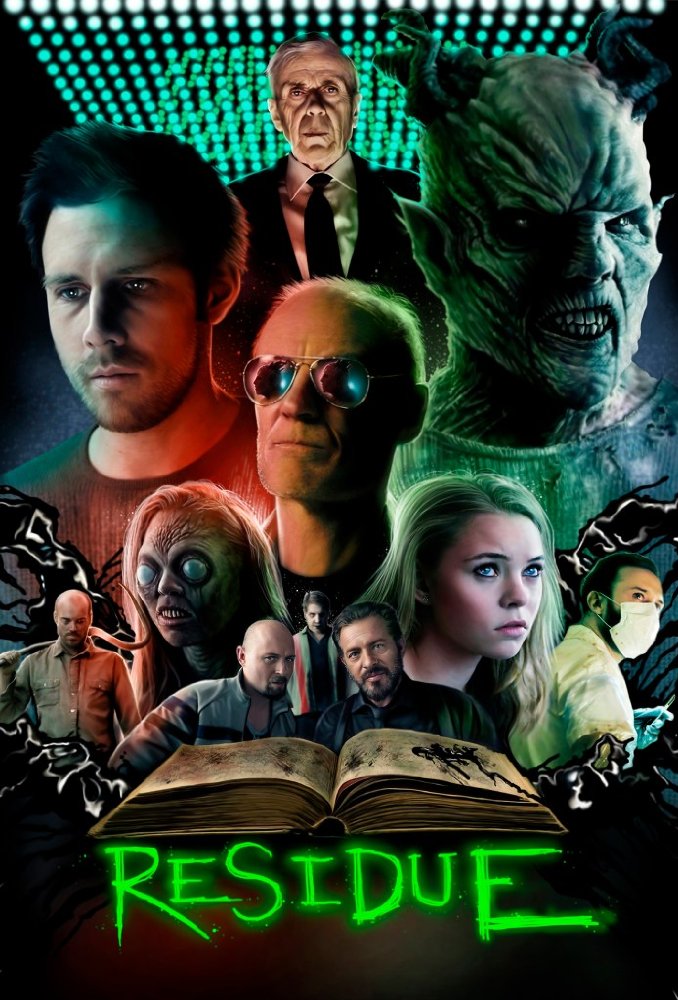
What are the three most important things that a director needs to keep in mind while making a film?
Safety first. That’s always number one. Every day is different of set. There’s a lot of moving parts all coming together. Safety meetings, safety talks make sure everyone feels comfortable speaking up if they’re worried about something.
The second is to pay attention to the clock. Writing is all about preparing for the future. Editing is about living in the past and taking all those pieces you’ve shot and putting them together the best way possible. But directing is all about ‘now’. It’s about being in the moment so pay attention and be on.
Third is to worship the story. A story has a beginning, a middle and an end. It’s so simple that it’s easy to screw up. Learn how to write and learn how to edit or at least respect the hell out of both of them.
What advice would you have for aspiring writer-directors?
Write a lot. You need at least three scripts to compete in today’s market. Give yourself the gift of time. Took me twenty years and I’d give twenty more to get to make a movie. Writers can get paid as much as doctors. A doctor is expected to spend over a decade educating and learning their craft. Expect that from yourself. If you luck out and make it with your first project then I hope you don’t let it go straight to your head and turn you into someone who doesn’t appreciate what people do for you. I love hearing success stories from people who fell on their face, got kicked several times when they were down but somehow for the strength to get back to the pirate ship, fell again, got kicked again, then somehow got that shot and made the most out of it. People who crawled their way to the top tend to know how to stay there, appreciate being there, and love to help others get there with them.
What film-related books and authors have been influential to you in your career so far?
That’s a long list but I guess at the top is Donald Maass. I love Donald Maass’ books – recommend all of them. They’re about writing novels but can easily be applied to screenwriting.
What other projects are you working on right now?
I’ve got four scripts for projects in development. Eight more I’m trying to find a home for. About a dozen more that I’m dying to find time to write. My first film Down the Line is getting released soon. I’m really excited for that.
Where can we find out more about you and Residue?
Check out Residue Film and Motorcycle Boy Productions on Facebook.
________________________________
Thanks to Rusty Nixon for speaking with us!
You can see Residue at The Rio on Sunday, July 9th, 2017 at 3:45PM. The filmmakers will be in attendance. For tickets, please visit riotheatretickets.ca.
After that, watch for it on VOD and iTunes on July 18th.

